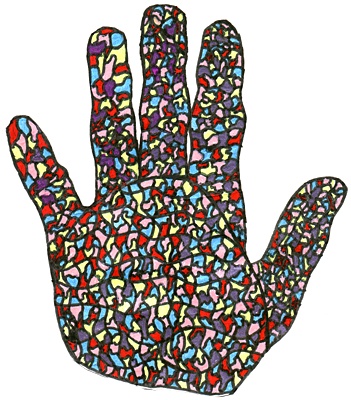All Nonfiction
- Bullying
- Books
- Academic
- Author Interviews
- Celebrity interviews
- College Articles
- College Essays
- Educator of the Year
- Heroes
- Interviews
- Memoir
- Personal Experience
- Sports
- Travel & Culture
All Opinions
- Bullying
- Current Events / Politics
- Discrimination
- Drugs / Alcohol / Smoking
- Entertainment / Celebrities
- Environment
- Love / Relationships
- Movies / Music / TV
- Pop Culture / Trends
- School / College
- Social Issues / Civics
- Spirituality / Religion
- Sports / Hobbies
All Hot Topics
- Bullying
- Community Service
- Environment
- Health
- Letters to the Editor
- Pride & Prejudice
- What Matters
- Back
Summer Guide
- Program Links
- Program Reviews
- Back
College Guide
- College Links
- College Reviews
- College Essays
- College Articles
- Back
Bullying: Problem & Proposal
I have identified two categories of bullying: cyber and "real life" bullying. I propose that the former be dealt with aggressively with legislative law and that the latter be handled by individual schools depending on the bullying climate of each campus.
Cyber-bullying is a huge issue. The irrepressible surge of new gadgets and social media outlets has many consequences. One of these consequences is the rising level of cyber-bullying. Cyber-bullying includes, but is not limited to: hateful messages left in a Formspring account or Tumblr blog, or anonymous posts on Myspace pages or Facebook walls. Cyberbullies act swiftly and silently, and the havoc they wreck is colossal. In 2011, Formspring was "discovered" by several people from my school. Everyone started to make accounts and invited others to ask them anonymous questions or leave nameless comments on their page. For the first couple of days, everything was relatively tame. Most of the questions were of the "what eyeliner do you use?" to "you're cute" like. But soon, things took a turn for the worst. Profanities and ugly names flooded into the ask boxes. Since Formspring was open to the public, anyone, really, could post anything and it would be seen by everyone if published. After a friend shared with me some of the heinous comments left in her box, we decided to terminate both our accounts then. I know a majority of the people deleted or stopped checking their Formspring accounts, but many others didn't. This also occurs on other internet sites. I know a friend who routinely receives hate messages in her Tumblr ask box. On her Tumblr blog, she write posts, calling the hate messages "no big deal" and says, with a sigh, that "haters will hate". But I know her words don't always translate into what she really feels. And despite the warnings against posting hateful content on such sites, the reality is that people do it anyway. This is why I propose there be more of a consequence for cyber-bullying, some legal ramifications for such heinous acts.
The monitoring of "real life" bullying, however, I think should be left to individual schools. The fact is that there are bullies at every school. But things get less concrete and more vague. The type, number, and aggressiveness of the bullies vary from school to school. A municipal, state, or federal law for bullying may be too aggressive and unnecessary for one school and too lenient for another. What individual school administrations should do is actively and aggressively campaign against bullying and have discussion with students about the bullying climate in their schools so they can decide on appropriate courses of action.
Mechanisms of bullying are various and numerous. The implementers of these mechanisms, even more so. But the more legal institutions, outside organizations, individual schools, and independent students cooperate, the more the specter of bullying can be diminished (and in a dream world, vanquished).

Similar Articles
JOIN THE DISCUSSION
This article has 0 comments.
